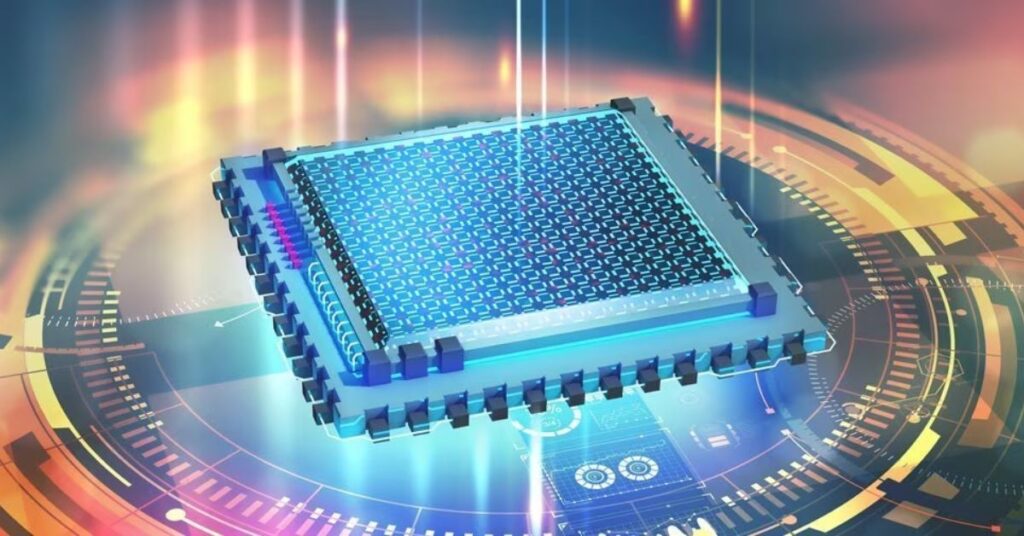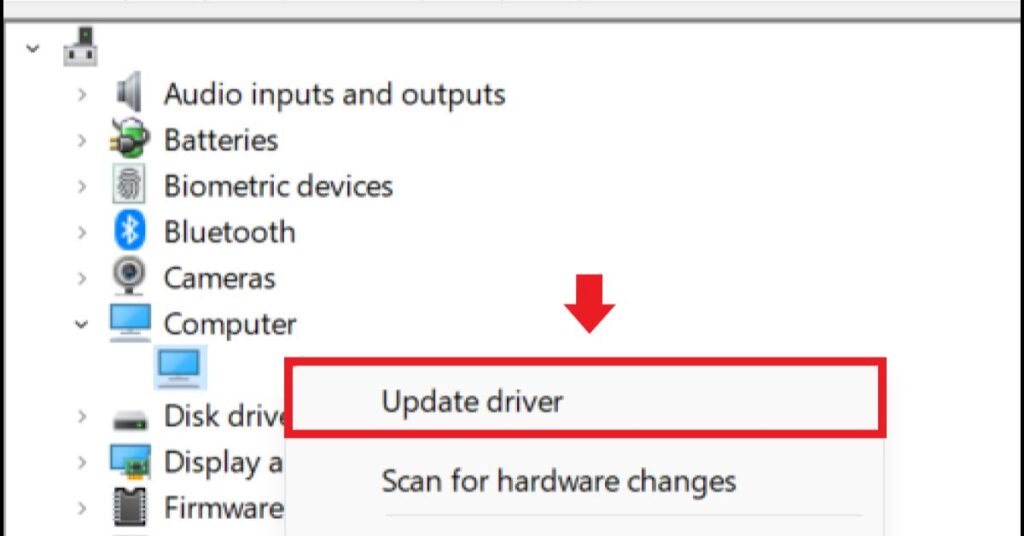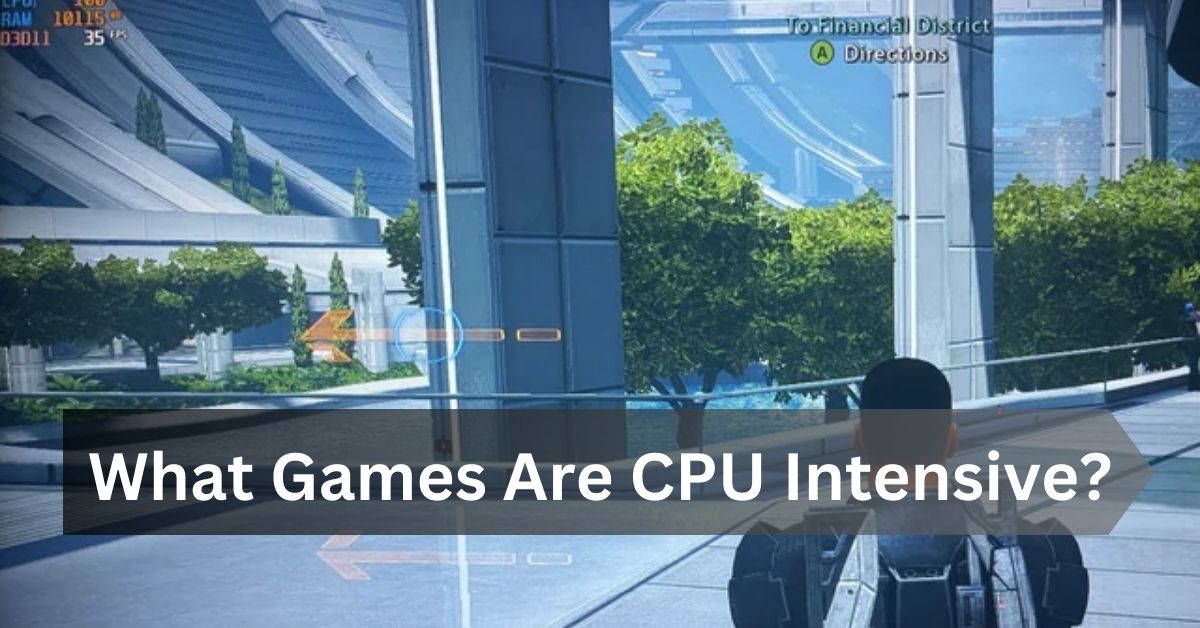Want to know which games will push your CPU to the Limit? Have you ever wondered why a game seems to slow down your computer?
Different games demand varying amounts of CPU power. CPU-intensive games, in particular, require substantial processing power from your computer’s central processing unit (CPU) to manage complex calculations and operations.
This demand significantly impacts the overall gaming experience and performance.Some games use complex simulations and artificial intelligence (AI). ), and In-game, there is much processing dependent on the CPU.
So, which games will Use your CPU the most? In this article discusses the factors that determine this and explores some games that put your processor to the test and put itself in the top contenders for the title of most CPU-intensive games in 2024 in the 1990s.
What are CPU-intensive games? Understanding CPU-intensive Games:
CPU in-depth games are commonly those that require complex AI calculations, physics simulations, huge numbers of objects on the display screen, or vast sports worlds that require a whole lot of processing power from the CPU.
These video games rely heavily on the CPU to address duties such as artificial intelligence, route locating, enemy moves, and other dynamic techniques that require real-time processing.
When gambling CPU-intensive video games, if your processor isn’t as challenging, you may enjoy latency, stuttering, or decreased frame rates.
The crucial role of the CPU in gaming: How your processor affects your gaming experience:
- The CPU in a game is responsible for carrying out instructions, managing AI computations, game logic, physics modeling, and performance optimization.
- A strong CPU can substantially improve your gaming experience by ensuring smooth frame rates, reducing latency or stuttering, and speeding up load times.
- Multiple cores in modern CPUs enable them to perform various tasks at once.
- The frames per second (FPS) and overall frame rate of your game are two ways the CPU can impact game performance.
- It affects CPU loading times and performance while playing games. A quicker CPU can make a big difference in how quickly games load, letting you get right into the action.
- Ultimately, the CPU is a crucial part.
Read More: BIOS Update Needed For New CPU-Upgrade Alert! A How To Guide
Factors affecting CPU performance in games:
Several factors contribute to making certain games CPU-intensive. Here are some key reasons why certain games place a heavy demand on your CPU:
1. Clock Speed:

Clock speed, measured in GHz and indicating how quickly the processor can execute instructions, is one of the most significant elements determining CPU performance in gaming. A faster clock develops game instructions faster, resulting in better gameplay. Low Clock Speed causes Potential lag and slower execution of game processes.
2. Number of Cores and Threads:
Another essential factor to consider is the number of cores in the CPU. Cores are individual processing units within the CPU that can handle different tasks simultaneously. Fewer Cores lead to Potential bottlenecks in games that require parallel processing of multiple tasks.
3. Cache Size:
Larger caches can reduce latency and improve CPU performance when gaming.Cache memory is a small, high-speed memory integrated into the CPU used to store frequently accessed data and retrieve information.. A smaller Cache slows data retrieval, potentially leading to stuttering or lag.
4. Instruction Set:
CPUs understand and execute instructions based on specific sets. Modern instruction sets can accelerate particular tasks, leading to smoother gameplay in games that utilize them. Older Instruction Sets are Less efficient in processing and have potential compatibility issues with newer games.
5. Efficiency of Software and Operating System:
Effective use of CPU resources, making the game smoother and more efficient. Poorly designed software can increase CPU load, resulting in potential performance issues such as latency or stuttering.
Read More: Do I Need Two CPU Power Cables?-Unlocking The Mystery Of Extra Connectors
Examples of popular CPU-intensive games:
For passionate gamers who stretch their system to the Limit, CPU-intensive games can be entertaining. Large open landscapes, intricate simulations, and AI actions that need a lot of control authority are standard features of these games. Here are a few CPU-intensive examples of popular video games with a high CPU load:
1. Civilization VI:

- Civilization VI is a popular strategy-based game that requires a powerful CPU to handle large data sets, large numbers of AI adversaries, and complex calculations to manage interstate communications resources. Complex systems include city construction, industry, diplomacy, and warfare. Civilization VI.
2. Cities: Skylines:
- In the simulation game, users manage every aspect of an expanding city. The game has complex graphics, dependable navigation, engaging artificial intelligence activities, and even the most powerful CPUs.
3. Total War: Three Kingdoms:
- The real-time strategy of this game Total War: Three Kingdoms allows players to view thousands of troops simultaneously on the screen. Due to its large environment and complex AI, the game requires a lot of CPU power, so a more powerful processor would be helpful.
4. Total War: Warhammer II:
- It is a real-time strategy game set in the Warhammer Fantasy setting. The game features massive conflicts with thousands of factions, each with its interactions and actions. The intricate AI and large-scale simulations in these significant events heavily tax the CPU, particularly during heated battles and campaign map calculations.
Tips for Optimizing Performance in CPU Intensive Games:
Consider these optimization tips to improve your performance in CPU-intensive games:
1. Update Drivers:

Ensure your graphics card and CPU drivers are up to date to take advantage of performance improvements and bug fixes that can enhance gaming experiences.
2. Adjust In-Game Graphics Settings:
Lowering graphical parameters like resolution and texture quality can increase frame rates and ease the load on your CPU without compromising video quality.
3. Close Background Programs:
Shut down unnecessary background applications and processes and close additional background programs, allowing the CPU to focus on delivering smoother gameplay.
4. Consider Hardware Upgrades:
While upgrading your CPU, RAM, or storage can improve overall performance, ensuring your new graphics card (GPU) fits seamlessly within your existing case is crucial for a successful upgrade. By following the tips in this guide, you’ll guarantee a smooth installation process and unlock the full potential of your new GPU.
Read More: Why Is My GPU Underperforming?-Quick Guide To Know Why?
FAQ’s:
1. How do I determine if my game is CPU intensive?
You can generally tell if a game is CPU-intensive by checking its device requirements and the recommended processor specification.
2. What graphic game settings must I modify to reduce the CPU load?
Lowering settings like decision, texture quality, and anti-aliasing can appreciably lessen the pressure on your CPU and increase the frame prices.
3. What types of games tend to use the most CPU?
Strategy games, open-world games, and games with complex simulations or AI tend to be more CPU intensive due to advanced technology and larger computers.
4. Why are strategy games like Total War: Warhammer II and Civilization VI CPU-intensive?
Strategy games require managing multiple units, complex AI interactions, and massive simulations, all of which require a great deal of CPU processing power to execute efficiently.
Conclusion:
In conclusion, you may enhance your gaming experience by determining which games use the most CPU and how to maximize your CPU performance.
You can improve your gaming performance and have smooth gaming by using the guidance in this article and getting an excellent CPU. Get ready to immerse yourself in your selected excessive-processor games and experience gaming like never before.
